07-13-Daily AI Daily
AI Insights Daily 2025/7/13
AI Daily | 8 AM Update | Web Data Aggregation | Cutting-Edge Science Exploration | Industry Voices | Open-Source Innovation | AI and Human Future | Visit Web Version ↗️
AI Content Summary
Alibaba Cloud’s Tongyi Qianwen has launched its desktop version, optimizing interactions and adding diverse AI features. Moonshot AI open-sourced its trillion-parameter Kimi K2 model, boosting its code and frontend capabilities and demonstrating stable, ultra-large-scale training. Stanford University will host a scientific conference where AI will be the first author. Regarding AI core talent mobility, Andrew Ng emphasized focusing on execution speed for entrepreneurship in the AI era.
AI Product & Feature Updates
- Alibaba Cloud’s Tongyi Qianwen Qwen Chat recently dropped a super practical desktop client, and the web version also got a major upgrade – their goal is to be your ultimate AI sidekick! 🚀 This new version seriously amps up the interaction experience and packs in a ton of fresh features like awesome image generation, efficient web development, deep thinking modes, and more powerful search capabilities. Plus, the desktop client rocks one-click MCP activation for seamless, super convenient access! ✨
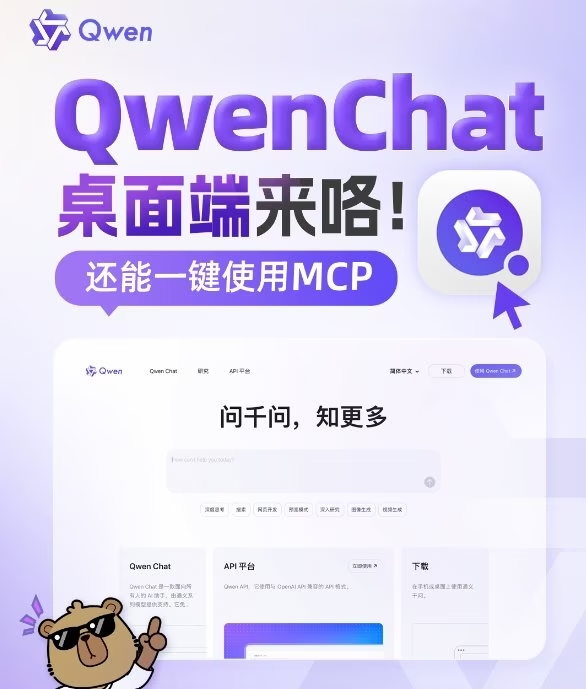
AI Cutting-Edge Research
- Hold the phone! 🚀 Moonshot AI recently dropped and open-sourced their Kimi K2 model, built on an MoE architecture! This model is seriously impressive with its exceptional code capabilities and its knack for tackling complex Agentic tasks, making it a real head-turner. 🎉 The Kimi K2 model boasts a staggering 1T total parameters and has already released Kimi-K2-Base and Kimi-K2-Instruct versions on ‘Model Address’. What’s more, its API service is fully live, rocking 128K context support, which means it can handle way longer and trickier conversations! 🤯
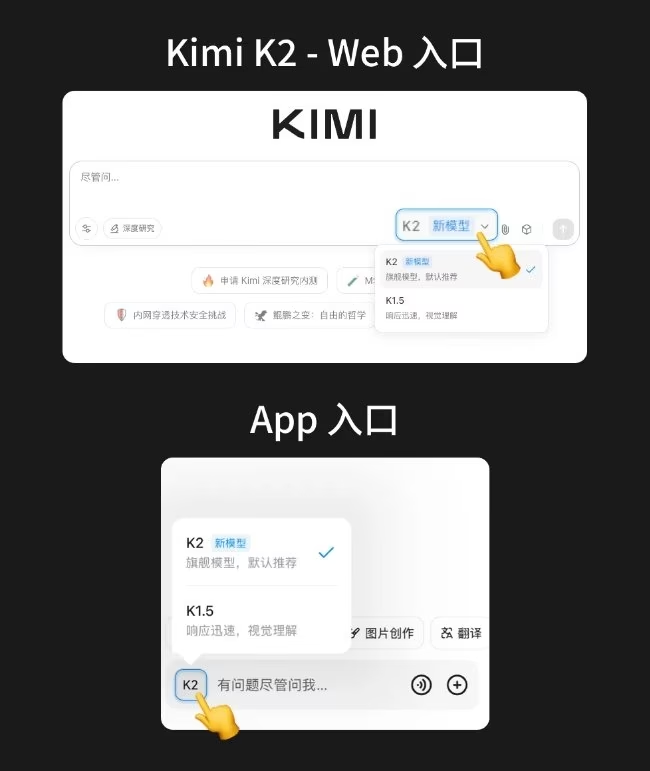
- Talk about groundbreaking! 🤯 Stanford University just announced they’re hosting the world’s first “Agents4Science 2025” conference in 2025, and here’s the kicker: the first author of papers must be an AI, and peer review will also be handled primarily by AI! 🤖 This event aims to transparently explore the future of AI-driven scientific discovery, gradually setting up AI’s attribution, verification, and ethical standards in scientific research. The conference is set for October 22, 2025, as an online virtual event. Wanna know more? Hit up the ‘Conference Website’!
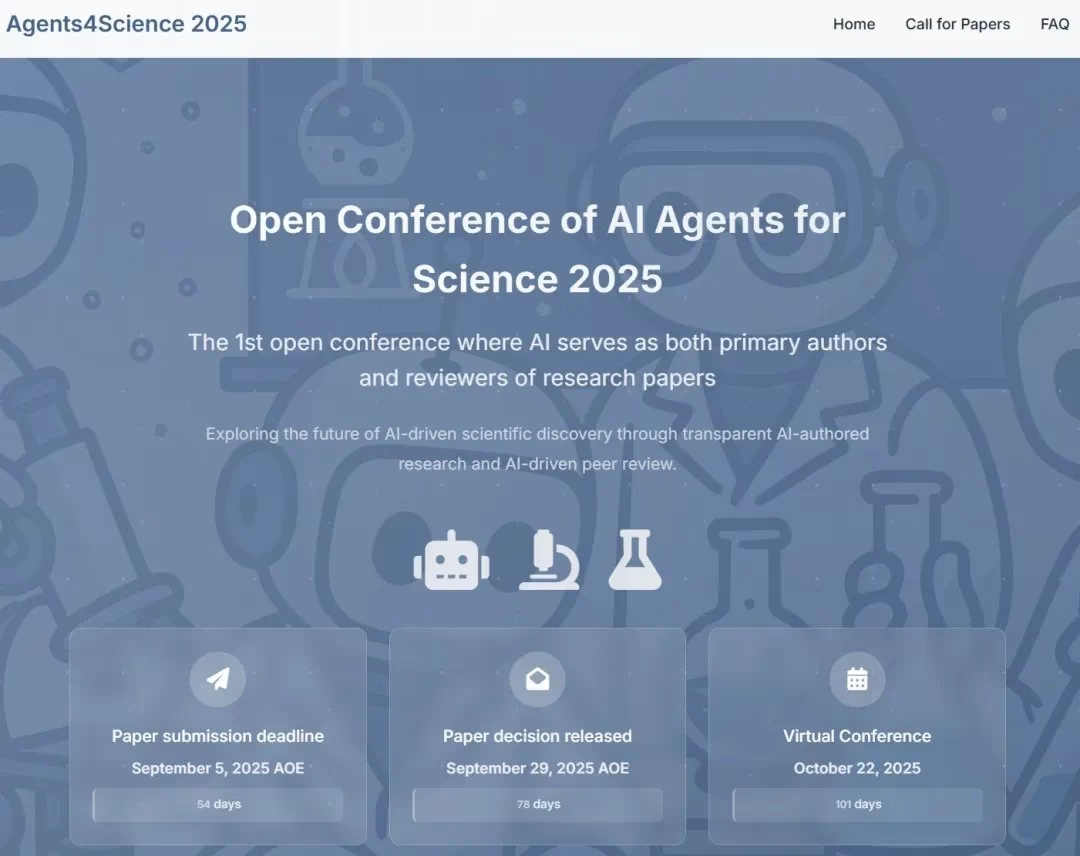
- Huge congrats! 🎉 The AI Security Team at South China University of Technology’s School of Computer Science, teaming up with Johns Hopkins University and UC San Diego, has crushed it in defending against malicious poisoning attacks in federated learning! They’ve unveiled some seriously innovative defense methods: FedID and Scope. 🙌 These groundbreaking research results have already been published back-to-back in top AI journal TPAMI 2025 and top cybersecurity journal TIFS 2025 — talk about impressive! FedID rocks by effectively detecting malicious gradients using various metrics and dynamic weighting; while Scope cleverly leverages dimension-wise normalization and differentiated scaling to reveal and combat constrained backdoor dimensions, which seriously boosts the security and robustness of federated learning! 🔒🛡️‘Paper Address’ ‘Code Link’
AI Industry Outlook & Social Impact
- Big news alert! 🚨 OpenAI’s core researchers Lu Liu and Allan Jabri, who spearheaded GPT-4o’s image generation feature, just announced they’re jumping ship to Meta. This is a real “talent migration” in the AI world! 🚶♀️🚶♂️ This move not only highlights OpenAI’s ongoing talent drain crisis following the Sam Altman ouster but also clearly signals that Meta is aggressively poaching top talent to fast-track its superintelligence dream. This is undoubtedly going to reshape the AI field’s competitive landscape! 💥

Open-Source TOP Projects
- Google just made a move! They’ve dropped “GenAI Processors,” an open-source Python library designed to seriously simplify and standardize the development of multi-modal AI applications based on the Gemini large model, all through structured, streaming, and modular approaches. 💡 This library lets you break down complex tasks into reusable Processor units, supporting real-time interaction and multi-modal data processing, making AI system building way more efficient and engineered! The code is already open-source at ‘Project Address’ — go check it out!
- OpenTelemetry Go API and SDK (opentelemetry-go) is rocking an impressive 5886 stars! ✨ It provides Go developers with the OpenTelemetry API and SDK, aiming to make it super easy for everyone to implement observability in Go applications, simplifying code debugging and performance monitoring. Tap here for more deets: ‘Project Address’
- The Graphiti project has snagged a whopping 12619 stars! 🌟 It’s laser-focused on building real-time knowledge graphs for AI agents, which can seriously boost AI systems’ ability to understand and interact with information, making AI way “smarter”! 🤖 More deets: ‘Project Address’
- The Pybind11 project, with its impressive 16933 stars, is truly awesome! 💫 It enables seamless interoperability between C++11 and Python, letting developers cleverly combine C++’s high performance with Python’s convenience – talk about having your cake and eating it too! 🐟🐻 More deets: ‘Project Address’
- uBlock Origin is pretty much a browser must-have! It’s a highly efficient and lightweight content blocker for Chromium and Firefox, currently boasting an incredible 55314 stars! 🌟 Its goal is to give you a fast, clean user experience, saying goodbye to annoying ads! ‘Project Address’
- agentic-doc, with 897 stars, is a Python library specifically designed for agentic document extraction from LandingAI. It aims to simplify relevant data processing workflows, making document handling smarter and more efficient. 📚 Find it at ‘Project Address’
- 90DaysOfCyberSecurity (9384 stars) is an awesome cybersecurity learning program! It offers a 90-day structured learning path, covering a whole range of core concepts and technical resources like Network+, Security+, Linux, Python, traffic analysis, Git, ELK, AWS, Azure, and Hacking. 🔐 If you’re looking to systematically learn cybersecurity, you absolutely can’t miss this project! ‘Project Address’
Social Media Shares
- Current AI models, like Claude Code and other agents, still tend to burn through more tokens to boost their success rate—basically, the “dumb way” of trying multiple times until they nail it. 😅 But, this seemingly “clumsy” strategy might just be a sign that the true AI efficiency era could hit within six months! 🤯 More deets here: ‘More Details’
- Mind-blowing! 😲 Kimi K2’s open-sourcing has completely unveiled the powerful magic of the MuonClip optimizer! It has successfully pushed LLM training scales to trillion-level parameters and achieved astonishingly stable training on 15.5 trillion tokens, completely flipping our traditional understanding of large-scale model training on its head! 😱 This also signals that the tech review mechanism in the AI industry is quietly evolving; we’re moving from the “B era” into a confident “T era”! 🚀‘More Details’
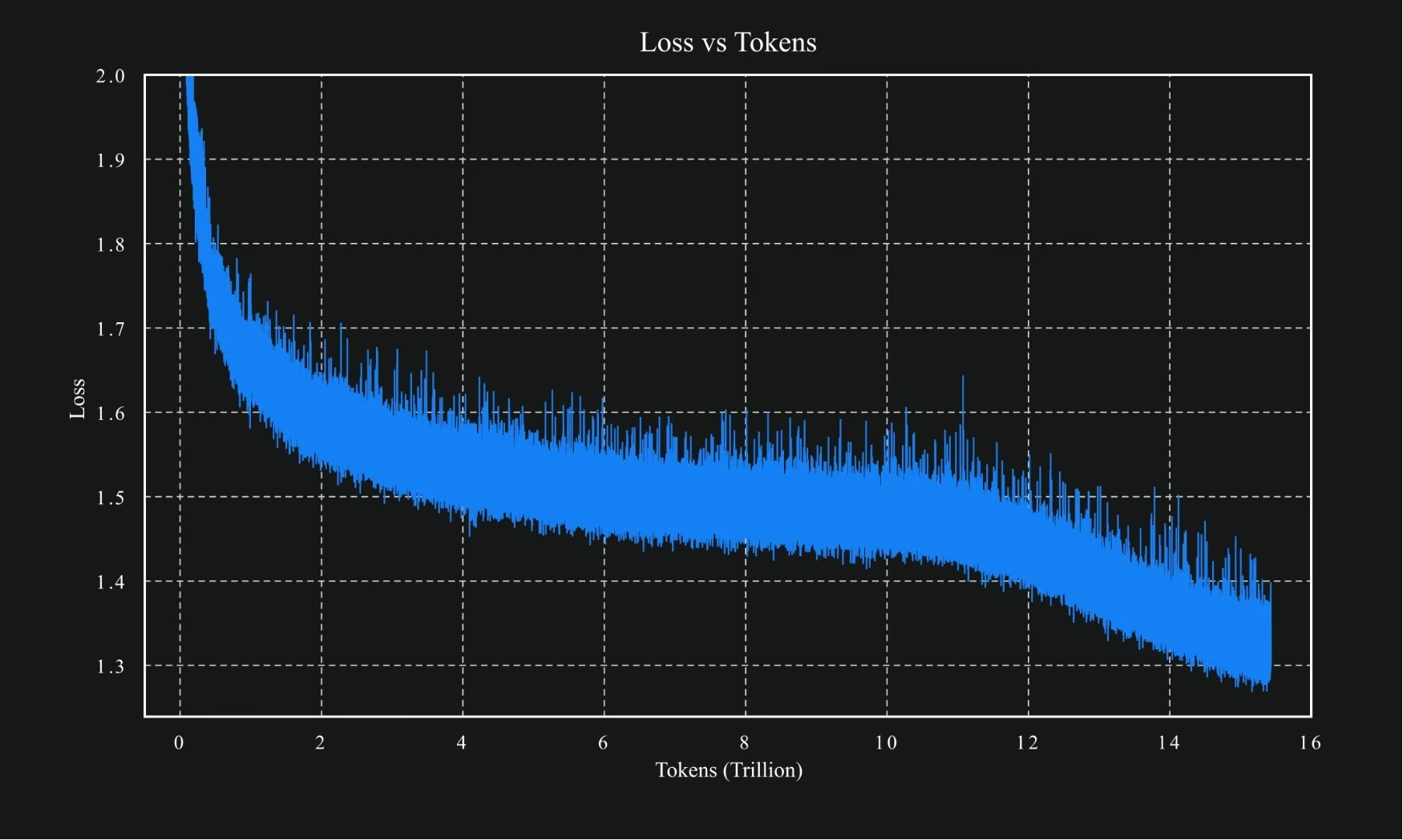
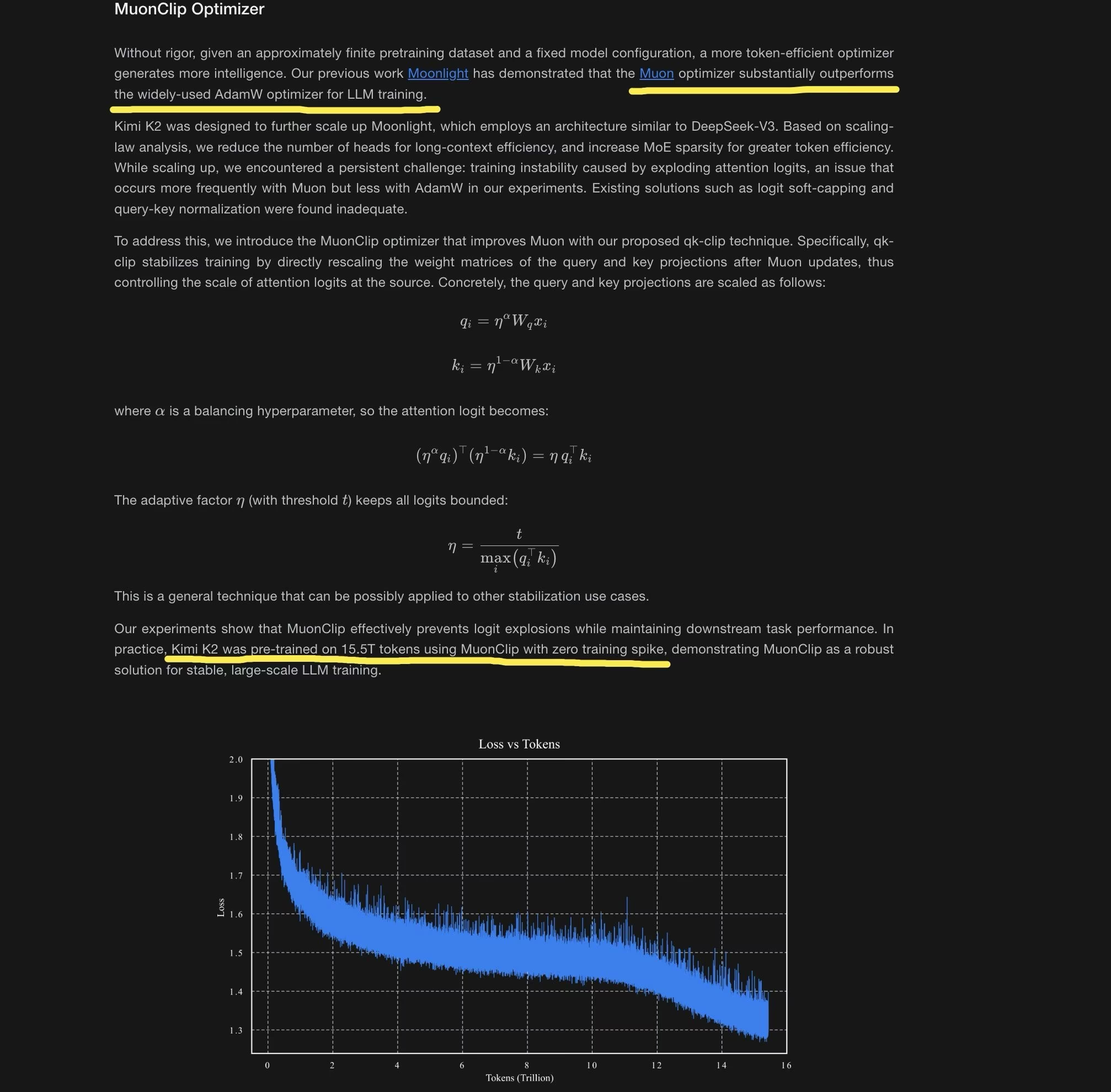
- Super powerful! 🤯 Kimi K2 is showcasing incredibly strong frontend generation capabilities! Not only can it perfectly handle complex page logic and animations, but it can even easily replace the Claude Code model for use, offering a cost-effective and ban-risk-free development experience! 👍 This undoubtedly fills a gap for domestic open-source models in terms of engineering practicality, completely reshaping developers’ confidence in homegrown large models! 💪‘More Details’
- Synced Review shared an awesome blog post highly recommended by Karpathy, emphasizing a core idea: AI is an engineer’s capability amplifier, but its effectiveness ultimately hinges on the engineer’s solid coding skills, precise prompts, and good software engineering practices. 💻 👨💻 The article goes deep into how to cleverly leverage AI to boost efficiency in development, debugging, learning, documentation generation, and code review, and re-examines software engineering principles in the AI era, especially highlighting the non-negotiable importance of testing! 🤔 Talk about a soul-searching question for all engineers! ‘More Details’
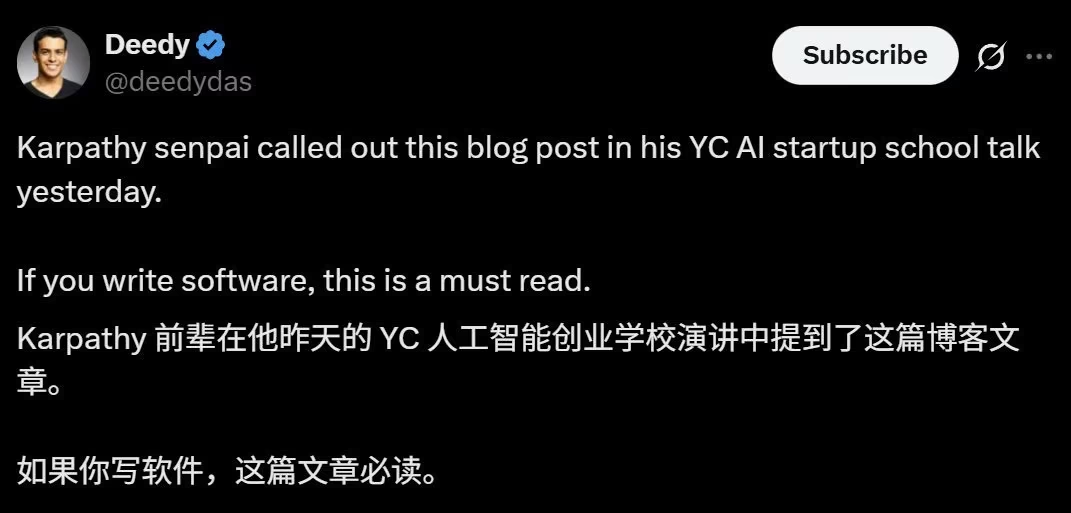
- Andrew Ng sharply pointed out in his latest YC speech that the key to successful entrepreneurship in the AI era is execution speed! 🚀 He believes that thanks to AI coding assistance, prototype development speed can increase tenfold or more, meaning the bottleneck for startups is no longer technical implementation but has shifted to product management and the user feedback loop! 🔄 He also specifically stressed that a deep understanding of AI building blocks (like agent workflows, RAG, fine-tuning) is central to building a competitive edge. At the same time, Ng urged everyone to be wary of overhyped dangerous narratives about AI and to actively protect the open-source ecosystem. Talk about some seriously enlightening words! 💡‘More Details’
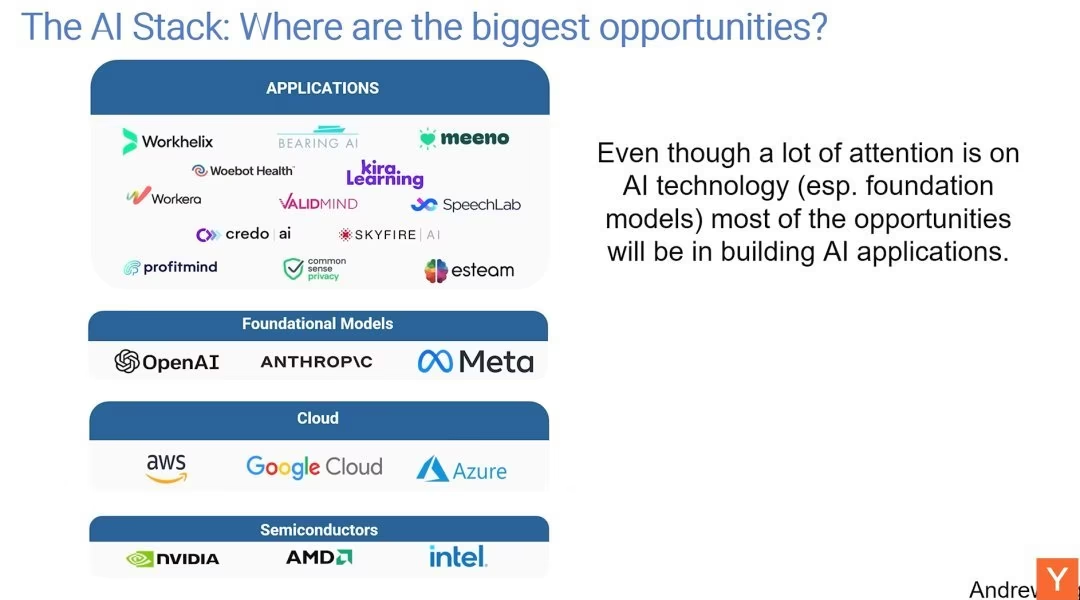
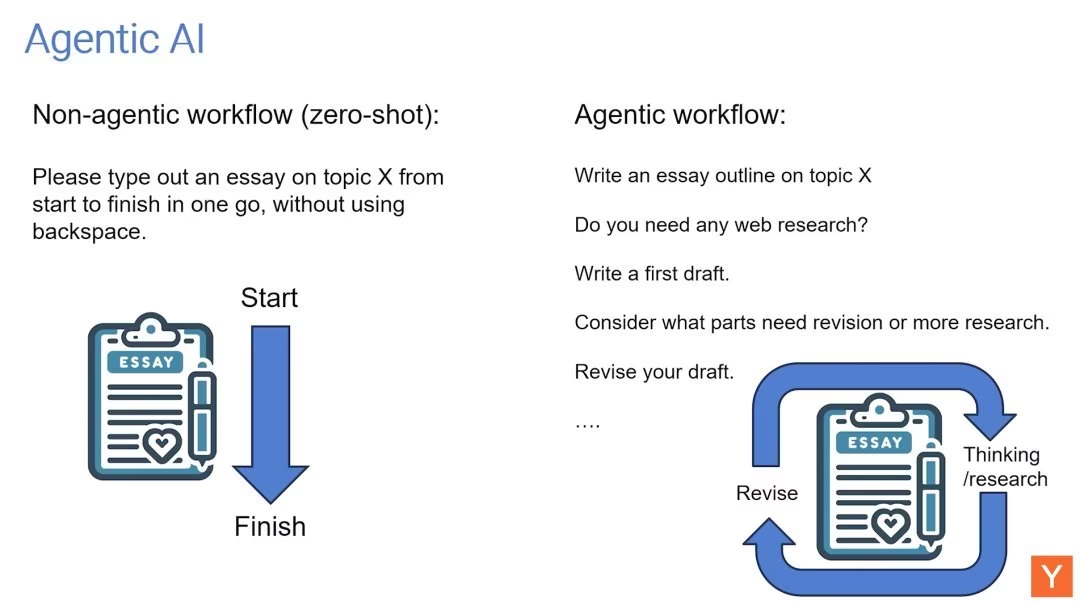
Listen to the Audio Version of AI Daily
| 🎙️ Xiaoyuzhou | 📹 Douyin |
|---|---|
| Laisheng Xiaojiuguan | Self-media Account |
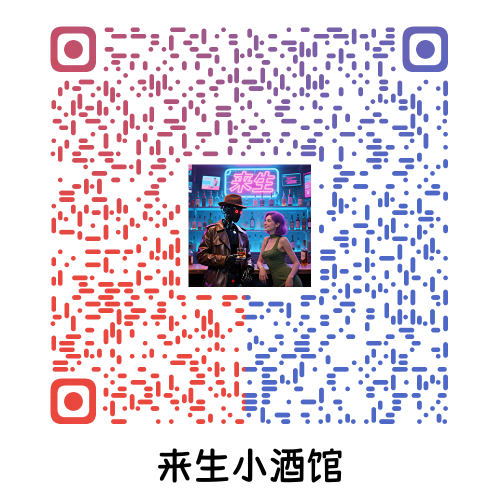 |  |
Last updated on